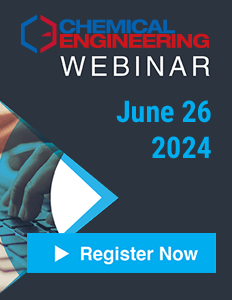Webinars
Improving chemical production workflows with AI: Lessons learned & quick wins for 2025
FREE | December 4, 2024
REGISTERBut what is the value potential of AI? Where can/should it be deployed? And most importantly, what do you need in order to trust it for critical workflows?
In this webinar, Cognite will discuss how to accelerate your data & AI journey, get ahead of potential missteps, and deliver future-proof capabilities with lessons learned from their work with Chemical manufacturers this year. Additionally, we’ll share key drivers of this success and a playbook that your digital operations team can also use to make faster progress and get some quick wins in 2025.
What is your calibration data trying to tell you? It’s more than you think.
FREE | December 11, 2024
REGISTERCalibration data in the chemical industry has the potential to drive significant efficiency and process improvements, but only if interpreted effectively. In our webinar, “What is Your Calibration Data Trying to Tell You? It’s More Than You Think,” we’ll guide you through best practices for analyzing calibration data to optimize performance without falling into the trap of over-analysis. You’ll discover how focusing on key parameters and streamlined calibration intervals can reduce data fatigue, control costs, and ultimately enhance decision-making.
This session begins with an overview of the risks of excessive data analysis, using real-life examples to demonstrate how over-analyzing calibration data can impact productivity and lead to unnecessary expenses. We’ll explore practical strategies to identify the most critical parameters, such as pH, conductivity, and temperature, and discuss the importance of setting analysis intervals that ensure relevant, actionable data. Attendees will also learn how digital tools and dashboards can simplify data management and improve response time, focusing only on insights that directly impact process quality.
Through a live demonstration of Beamex tools, we’ll show how to capture, trend, and log calibration data efficiently, allowing you to monitor only what matters most. We’ll also address specific challenges related to harsh conditions common in chemical environments, such as extreme pH levels, temperature fluctuations, and corrosive materials. This interactive session will conclude with a Q&A, where you can address your unique challenges.

Optimizing Material Handling with the Tubular Drag Conveyor
FREE | November 19, 2024
REGISTERJoin us for an informative webinar where we’ll dive into how tubular drag conveyors have transformed material handling in the chemical industry. These systems have evolved over decades to address the toughest challenges faced by chemical manufacturers. From handling abrasive and corrosive materials to maintaining product integrity and ensuring a safe, dust-free environment, the tubular drag conveyor can be engineered to meet the highest industry standards.
Whether you’re looking to improve product quality, reduce downtime, or boost operational safety, this webinar will offer valuable insights on how the tubular drag conveyor can optimize your processes and help you stay ahead in a competitive industry. Don’t miss this opportunity to learn from Hapman’s decades of experience and expertise! Register now to secure your spot.

Green Hydrogen for Cross Sector Decarbonization
FREE | November 5, 2024
REGISTERRenewables are well suited to meet the diverse energy demands of various industries by providing sustainable, clean, and efficient energy, free of harmful pollution or greenhouse gas emissions. However, the intermittent nature of renewable energy resources also is a limiting factor in terms of how much can be put on the grid. Energy storage eases intermittent power disruptions by storing excess power generated by renewable resources at times of low demand and distributing the power during periods of heightened demand. This helps to balance the load on the energy grid and reduce reliance on non-renewable resources. Combining grid intelligence with renewable resources and an energy storage solution provides a dependable, environmentally friendly and resilient supply of energy. Blazing the path for clean, reliable, and cost-effective energy storage is electrolysis technology, utilizing water and excess renewable energy to produce hydrogen. This can be distributed or stored for future use, essentially time shifting the energy supply to best align with cyclic and sometimes unpredictable power demands.
The green hydrogen enabled by electrolysis can be used for a variety of high value purposes. Biomethanization for example, uses hydrogen to convert CO2 into methane and can improve this conversion from 55% to 99%, reducing GHG emissions while producing biomethane that can be fed directly into the natural gas grid. Green hydrogen can also be used for “e-fuels”, which are chemically identical to fossil-based fuels but are essentially carbon neutral or even carbon negative in their production cycle. For example, hydrogen can be used to produce e-methanol, e-gasoline, sustainable aviation fuel (SAF) and other “drop-in” replacements for existing fossil-based fuels. These green molecules leverage existing infrastructure for storage and distribution, thereby supporting commercial viability. In addition, when supplied to industrial applications, green hydrogen can be used to support various processes, including ammonia production, refining and hydrogenation. Green hydrogen from electrolysis is widely recognized as the only solution that is viable for true cross-sector decarbonization. This presentation will focus on the high value use cases for green hydrogen, and what is needed for commercial activation of these markets.
- The commercial status of electrolyzer technology
- A look ahead at electrolyzer cost trends
- Use cases for hydrogen that are enabled by electrolyzers
- Growth trends in the market for hydrogen and electrolyzers

Bulk Solids Feeders: How to prevent solids and powder flow stoppages with proper feeder design
FREE | October 29, 2024
REGISTERJoin our webinar to gain valuable insights into common feeder-related flow problems and receive essential design recommendations that can significantly benefit your operations.
- What are common flow problems?
- What are flow patterns?
- Comparison of different types of feeders
- Difference in feeders, conveyors, and dischargers

Beyond ProcessBook & PI Vision: Exploring Today’s Industrial Analytics Tools
FREE | October 16, 2024
REGISTERIn the Manufacturing 4.0 era, industrial organizations have more data at their fingertips than ever, offering the promise of higher production rates, more consistent quality, and reduced costs through data-driven strategies.
Standing between many businesses and this promise of process optimization are questions surrounding the right tools to harness this data effectively – a choice complicated by the shifting status of longtime standard OSIsoft’s ProcessBook and PI Vision applications.
- A framework for understanding and categorizing the current industrial analytics landscape
- The roles new AI and machine learning applications play in optimizing processes
- The current status and roles of ProcessBook and PI Vision in the market
- Methods for migrating from legacy systems like ProcessBook
- A firsthand look at the solutions dataPARC can offer in this evolving space

Enhancing Ethylene Production: Borouge’s Success with Aspen GDOT™ Deployment
FREE | July 25, 2024
REGISTERFounded in 1998 through a partnership between ADNOC and Borealis, Borouge has one of the largest petrochemical complexes in Al Ruwais Industrial City, UAE. To meet increasing demand from downstream polymer plants and optimize its 3600 KTA ethylene complex, Borouge implemented Aspen GDOT for dynamic real-time optimization.
Join us as experts from Borouge share their experiences deploying Aspen GDOT and how it enabled them to maximize feed utilization, minimize ethane flaring and enhance overall furnace efficiency. Learn how Borouge was able to:
- Improve total site ultimate yield by 0.4%, delivering $10M USD of additional benefits
- Reduce total flaring intervals by 90%
- Increase energy savings by optimizing ethane recycle rates and inventory management
Discover how Aspen GDOT dynamic optimization helped Borouge achieve operational excellence in ethylene production.
By registering for this webinar, your contact information may be shared with our co-sponsor, Access Intelligence. Please click here to view data privacy policies.

Navigating the Digital Workforce: 4 Strategies for Success in the Age of Technology
FREE | July 11, 2024
REGISTERThe workforce of today is undergoing changes at a pace rarely seen before. This is true across all sectors including the chemical industry. As a result, workers must be able to quickly adapt and be able to take full advantage of digital technologies that will enable them to do their jobs more efficiently. But how do you make that happen?
Following a brief introduction to chemical operations today, how it is changing and why, we will first focus on the technological aspect of workforce development. This includes a discussion of why technology is important, what the value of partner ecosystems is, how to approach data governance, and more. We will provide examples of how work can be performed more efficiently using technology.
Not everything is about technology, however, our expert panelists will also be discussing how businesses must create more flexible organizational setups to support and empower the workforce to make the changes happen. After all, most technology implementations will not be successful without the full support of the workforce!
Don’t miss this opportunity to gain practical insights and stay ahead in today’s dynamic digital landscape!

Optimizing Asset Management with SCADA Systems: Leveraging Data for Operational Excellence
FREE | June 26, 2024
REGISTERJoin us for an insightful webinar where we discuss the use of SCADA (supervisory control and data acquisition) systems—a crucial type of industrial control system (ICS) used for monitoring and controlling energy infrastructure and plant processes—for asset management. In this webinar, we’ll explore how organizations can overcome integration challenges (such as integration with components, multiple OEMs, etc.) and ensure seamless data interoperability between these critical systems. Through real-world examples, we’ll showcase how seamless integration drives operational efficiencies, enhances asset management strategies, and ultimately leads to better decision-making in industrial settings. In today’s dynamic environment, maximizing asset performance is paramount for maintaining competitiveness and ensuring business continuity. By harnessing the power of SCADA systems, organizations can unlock new opportunities to monitor, control, and optimize their assets in real-time, ultimately driving greater efficiency and effectiveness across their operations.
This webinar is proudly sponsored by Emerson Automation Solutions and GE Vernova.

Webinar with Chemical Engineering: Accelerate Process and Product Development with Advanced Simulation
FREE | June 18, 2024
REGISTERIn the fast-paced world of specialty chemicals and polymers, rapid design and development are critical to stay ahead. Process simulation technology has evolved to streamline these processes, delivering accelerated product launches and efficient scale-ups.
Join AspenTech® experts to learn about the latest advancements in process simulation and their profound impact on industry practices. Discover how you can use this technology to:
- Simulate processes involving particulate solids.
- Model batch processes for enhanced efficiency.
- Size and rate critical equipment to optimize operations.
You’ll also hear real-world success stories showcasing the benefits of integrating simulation into new product development and scale-up strategies.
